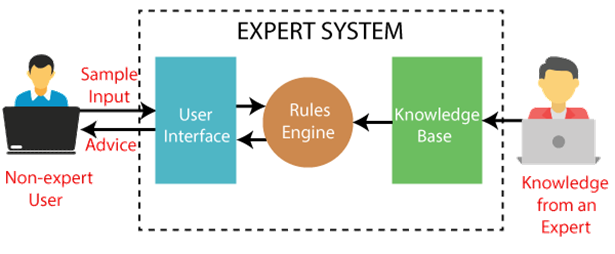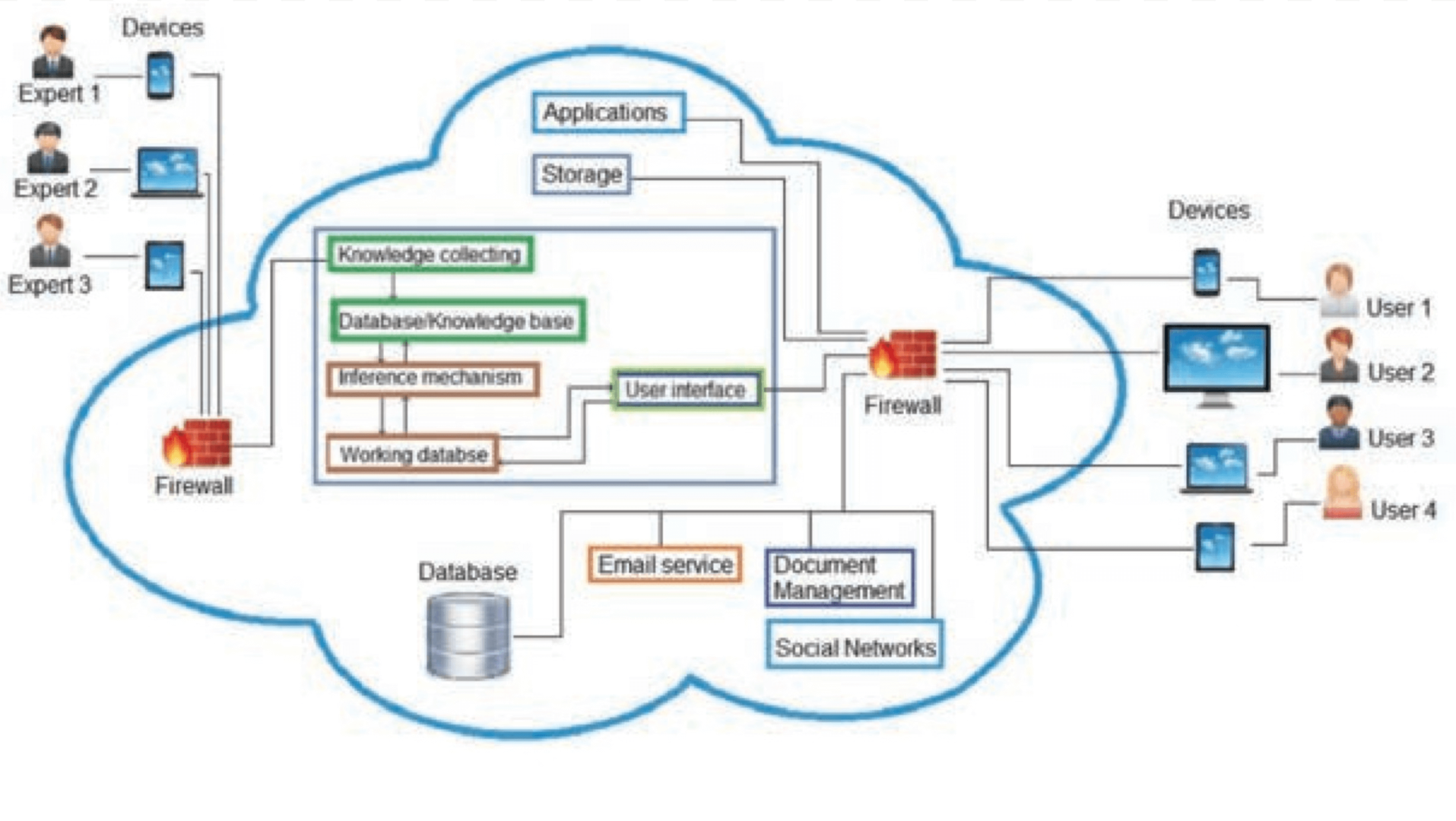
The Role of Expert Systems in Cloud Computing
Cloud computing has revolutionized the way we store, access, and process data.
It has enabled organizations to leverage the power of the internet to deliver scalable and flexible computing resources to users worldwide. One of the key technologies that are driving the adoption of cloud computing is expert systems. Expert systems are computer programs that are designed to mimic the decision-making abilities of a human expert in a particular domain.
There are numerous examples of expert systems being used in cloud computing to improve performance, efficiency, and security. Here are a few examples:
Amazon Web Services (AWS) Trusted Advisor: AWS Trusted Advisor is an expert system that provides automated recommendations to help users optimize their AWS infrastructure for cost savings, performance, security, and fault tolerance. It analyzes data from the user's AWS account to identify areas where improvements can be made, such as unused resources or inefficient configurations.
IBM Watson: IBM Watson is a cognitive computing platform that uses AI and natural language processing to analyze large amounts of unstructured data. It can be used in cloud computing to help organizations make better decisions based on insights gleaned from data.
Google DeepMind: Google DeepMind is an AI research lab that has developed an expert system called AlphaGo, which is capable of playing the complex board game Go at a superhuman level. AlphaGo uses a combination of machine learning and search algorithms to make decisions based on the current state of the game.
In this article, we will explore the role of expert systems in cloud computing, and how they are being used to enhance the performance, efficiency, and security of cloud-based systems.
What Are Expert Systems?

Expert systems are artificial intelligence (AI) applications that use knowledge-based reasoning to solve complex problems in a specific domain. They are designed to replicate the decision-making process of a human expert, using a set of rules, heuristics, and algorithms to reach a conclusion or make a recommendation. Expert systems are widely used in fields such as medicine, finance, law, and engineering, where their ability to analyze large amounts of data and identify patterns can be leveraged to make better decisions.
Expert Systems in Cloud Computing

Expert systems are playing an increasingly important role in cloud computing. They are being used to improve the performance, efficiency, and security of cloud-based systems, by automating tasks that would otherwise require human intervention.
Performance
Expert systems can be used to optimize the performance of cloud-based systems by identifying and resolving bottlenecks and other performance issues. For example, an expert system could analyze network traffic data to identify patterns of usage and identify areas where network capacity could be increased. This would enable the system to handle larger volumes of traffic and reduce the risk of downtime or service interruptions.
Efficiency
Expert systems can also be used to improve the efficiency of cloud-based systems by automating tasks that are repetitive or time-consuming. For example, an expert system could be used to automate the process of scaling resources up or down based on demand, reducing the need for manual intervention and increasing the speed and accuracy of resource allocation.
Security
Expert systems can also be used to enhance the security of cloud-based systems by identifying and mitigating potential security threats. For example, an expert system could analyze network traffic data to identify patterns of behavior that could indicate a cyberattack. This would enable the system to take proactive measures to prevent the attack from being successful, such as blocking the attacker's IP address or quarantining infected devices.
Benefits of Expert Systems in Cloud Computing

There are several benefits to using expert systems in cloud computing:
Efficiency
Expert systems can automate tasks that would otherwise require human intervention, reducing the time and resources required to manage cloud-based systems.
Accuracy
Expert systems can analyze large amounts of data and identify patterns that might be missed by humans, leading to more accurate recommendations and decisions.
Security
Expert systems can identify potential security threats and take proactive measures to prevent them from being successful, reducing the risk of data breaches or other security incidents.
Scalability
Expert systems can help cloud-based systems scale up or down based on demand, ensuring that resources are allocated efficiently and effectively.
Cost Savings
Expert systems can identify areas where cost savings can be achieved, such as unused resources or inefficient configurations, leading to cost savings for the organization. Considering the average cloud based server cost, these savings can add up significantly over time. Plus, the use of expert systems eliminates the need for costly human experts in certain areas.
Challenges of Expert Systems in Cloud Computing

While expert systems offer many benefits for cloud computing, there are also some challenges that must be addressed. These include:
Data Quality
Expert systems rely on high-quality data to make accurate recommendations and decisions. If the data is incomplete, outdated, or inaccurate, the recommendations and decisions made by the system may be flawed.
Scalability
Expert systems must be able to scale up or down to handle changes in demand. If the system is not designed to handle large volumes of data or users, it may become overwhelmed and unable to provide accurate recommendations or decisions.
Integration
Expert systems must be integrated with existing systems and processes to be effective. If the system is not integrated properly, it may not be able to access the data it needs to make accurate recommendations or decisions.
Training
Expert systems must be trained on the data and rules specific to the domain in which they will be used. If the system is not trained properly, it may make inaccurate recommendations or decisions.
Conclusion
Expert systems are becoming an increasingly important tool in cloud computing. They offer numerous benefits, including improved performance, efficiency, and security. By automating tasks that would otherwise require human intervention, expert systems can help organizations achieve cost savings and scale their systems up or down based on demand. However, there are also challenges that must be addressed, such as ensuring data quality, scalability, and proper integration with existing systems and processes. As cloud computing continues to evolve, expert systems will likely play an even greater role in helping organizations achieve their goals.
Trending
-
1 How Does SaaS Differ From IaaS And PaaS?
Fabrice Beaux -
2 Single Page Applications vs Multi-Page Applications
Fabrice Beaux -
3 Top 7 Effective Strategies for Multi-Language Website Development
Fabrice Beaux -
4 Boost Engagement to Infinity and Beyond: Unleashing AI-Driven Support
Anas Bouargane -
5 The Cheapest And Most Beautiful Stickers in CS2
Daniel Hall





Comments